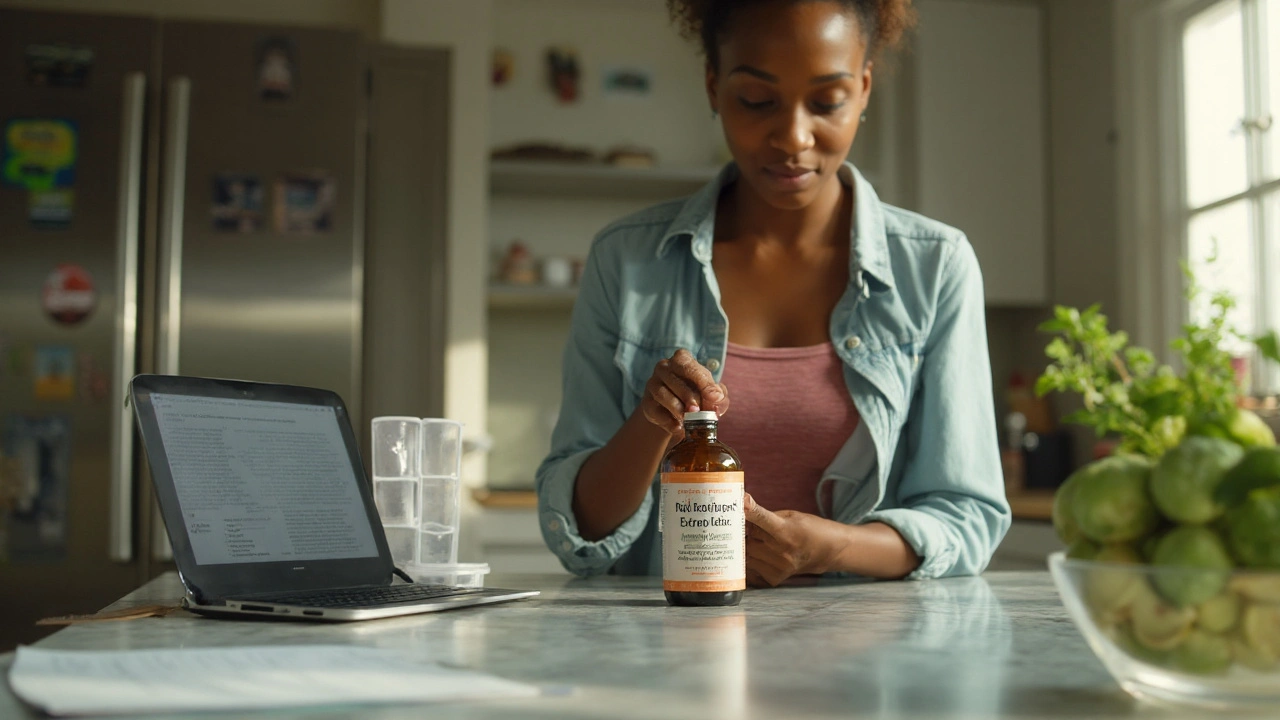Vitamin K Interaction Guide: What to Watch Out For
Vitamin K plays a big role in blood clotting, so it shows up on many medication labels. If you’re on a blood thinner or taking other drugs, knowing which foods and supplements affect vitamin K can save you from unwanted side effects.
Medications That React With Vitamin K
The most famous one is warfarin (Coumadin). Warfarin works by blocking vitamin K, so eating a lot of leafy greens or taking a vitamin K supplement can blunt its effect and raise your clot‑risk. The reverse is also true: a sudden drop in vitamin K intake can make warfarin too strong and cause bleeding. That’s why doctors ask patients to keep their diet steady.
Other drugs that touch the vitamin K pathway include:
- Antibiotics like metronidazole and cephalosporins – they can reduce gut bacteria that produce vitamin K, raising warfarin levels.
- Statins (e.g., simvastatin) – they may slightly lower vitamin K2, which could affect bone health when combined with low dietary intake.
- Oral contraceptives – they can increase clotting factors, so vitamin K status matters if you’re also on anticoagulants.
- Barbiturates and anti‑seizure meds – they can speed up the breakdown of vitamin K‑dependent proteins.
Always tell your pharmacist if you start or stop any of these meds, especially if you’re on a blood thinner.
Foods and Supplements That Shift Vitamin K Levels
Leafy greens are the headline act: kale, spinach, collard greens, and Swiss chard are loaded with vitamin K1. A single cup of cooked kale can have more than 500% of the daily value. If you’re on warfarin, eating that amount suddenly can make your INR drop.
Fermented foods like natto are a powerhouse for vitamin K2, which is important for bone health but also interacts with the same clotting pathway. Even small amounts of natto can swing your INR if you’re not used to it.
Supplements add another layer. Over‑the‑counter vitamin K1 (often sold as K1‑202) or K2 (MK‑7) can quickly boost your levels. People sometimes take them for bone strength without realizing they could interfere with anticoagulants.
Alcohol, especially heavy drinking, reduces the liver’s ability to use vitamin K, making clotting factors less effective. It’s another reason to keep alcohol intake moderate if you’re on blood thinners.
Here’s a quick cheat sheet:
- High‑K foods: kale, spinach, broccoli, Brussels sprouts, green beans.
- Moderate‑K foods: avocado, peas, asparagus.
- Low‑K foods: berries, apples, bananas, white rice.
Sticking to a consistent pattern—whether you eat a lot of greens or a little—helps your doctor keep your INR stable.
If you love smoothies, try blending low‑K fruits with a modest handful of greens instead of loading the cup with spinach. That way you get some nutrients without shocking your clotting system.
When you add a new supplement, ask your doctor to check your INR a few days later. A tiny change can be spotted early and adjustments made before anything serious happens.
Bottom line: vitamin K isn’t a villain, but it does have a strong partnership with certain meds. Keeping your diet steady, reporting new drugs, and checking labs regularly will keep you safe and healthy.
2025 evidence-based guide to Brussels sprout supplements: benefits, dosing, safety, UK buying tips, and a practical checklist to use them smartly.
